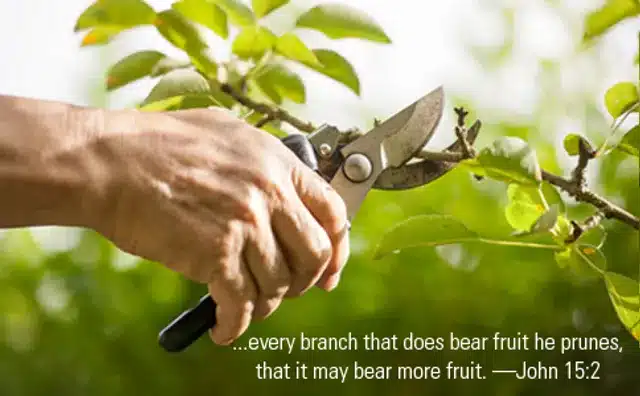Upon discovering the pruning process in John 15:2, our desires and motives in our Christian life will be greatly challenged. We often tell the Lord, “I just want to grow and be more useful to you Lord,” but oftentimes we resist the pruning process, in which God removes things that hinder our growth and usefulness.
At the beginning of Heb. 12, these things from our lives that God desires to remove are referred to as encumbrances (things that aren’t necessarily wicked in themselves, but can still be harmful due to an idolatrous inclination—people, positions, proficiencies) and also sin. When we oppose and complain and choose to be depressed about the cutting away of those things we are essentially telling God: “I do want to grow, but I certainly don’t want to experience any physical or emotional pain in the process.” Or worse, we insinuate from our darkest sinful dispositions: “Lord, you have no right to remove things from my life just to create more fruitfulness. Isn’t my growth up to this point good enough for you? I’m pretty satisfied where I’m at. I’ve had enough hardship and trials. Please just leave me alone for a while.”
It’s precisely due to thoughts such as those, that the Lord must prune our lives for our good and his glory. In other words, when sin is exposed by the pruning, that in and of itself proves the pruning was absolutely necessary.

